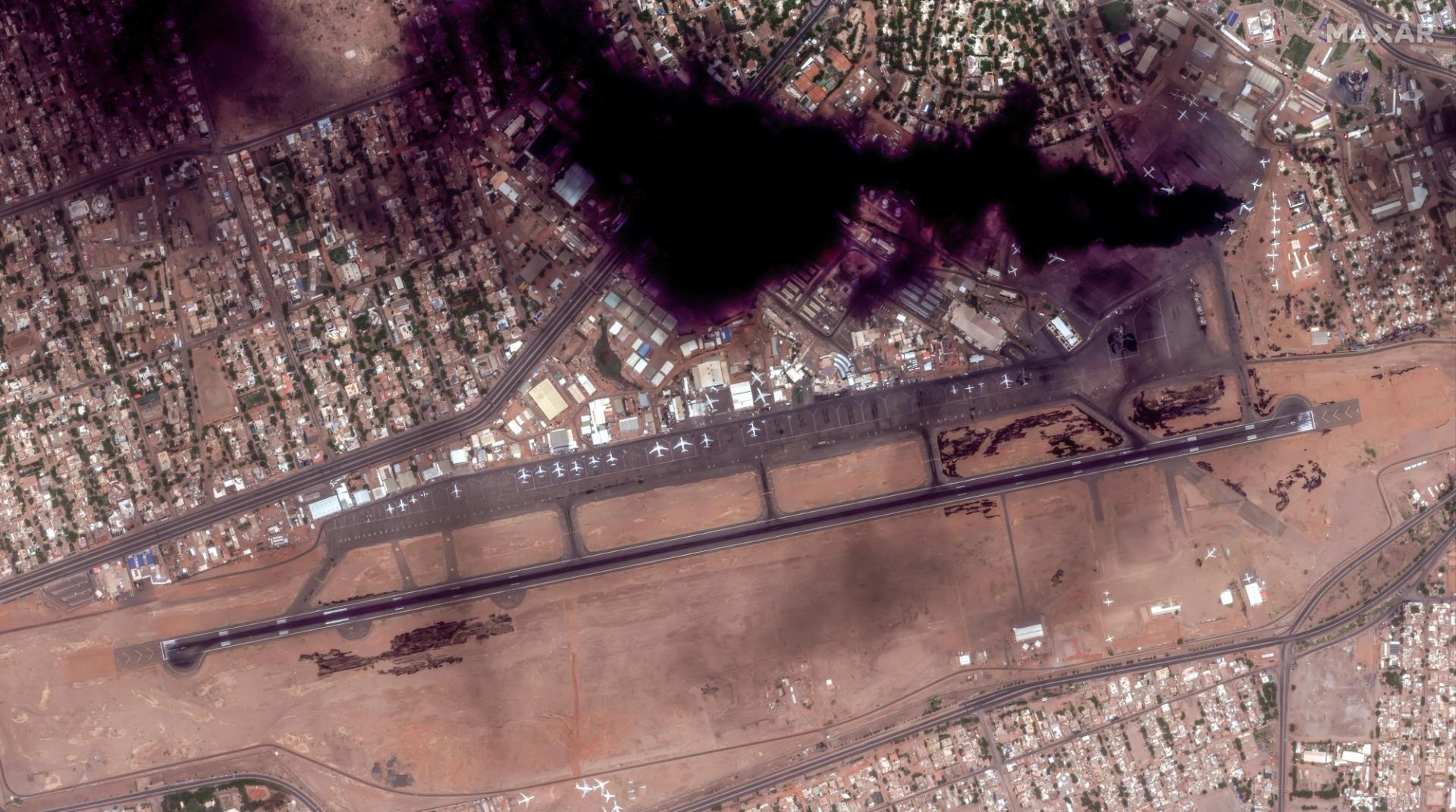The News
More than 180 people have been killed and 1,800 injured in Sudan, as violent clashes between the country’s army and rival paramilitary forces continue for a third day, the United Nations said Monday.
In this article:
Know More
Days of fighting between the Rapid Support Forces (RSF), the country’s paramilitary group, and the Sudanese Army, have left more than 5 million people in the northeast African country stranded at home without water or electricity, while hospitals struggle with mounting casualties.
Fighting first broke out on the morning of April 15, when each side accused the other of shooting first.
On Monday, the European Union’s ambassador to Sudan was assaulted in his home in Khartoum, according to Joseph Borrell, the bloc’s top diplomat. He called the attack a “gross violation of the Vienna Convention”.
“Security of diplomatic premises and staff is a primary responsibility of Sudanese authorities and an obligation under international law,” he wrote.
Volker Perthes, the United Nations envoy to Sudan, said Monday that gunmen have been targeting and destroying offices of U.N. aid agencies, including the World Food Program, Unicef, and the United Nations Development Program ––making it nearly impossible for agencies to carry out relief operations.
More than a third of the population in the northeast African country faces acute hunger. Last year, the World Food Program declared that Sudan was experiencing its worst famine in four decades.
Step Back
The intense conflict comes after months of simmering tensions between the country’s two rival groups.
Sudan’s military junta, which has for years positioned itself as the country’s leading decision-maker, is headed by President Abdel Fattah al-Burhan, while the RSF is led by vice president Mohamed Hamdan Dagalo.
In 2021, the two groups joined forces to overthrow a civilian government that had been put in place since Omar al Bashir, the country’s former dictator, was forced out of office in a coup d’état.
The leaders of the two most powerful groups have “quarreled over the makeup of the country’s future military body,” Jay Solomon, Semafor’s Security Editor, writes in the latest Security newsletter, and have pushed back on the public’s calls for the military to divest itself from “lucrative business interests.”
RSF, however, now wants to control the country.
The View From the US
Saudi Arabia and the United Arab Emirates are major investors in Sudan, and on Saturday, U.S. Secretary of State Antony Blinken called on the two countries to intervene and influence the two military leaders to put Sudan on a democratic path.
“The only way forward is to return to negotiations that support the Sudanese people’s democratic aspirations,” Blinken said.
